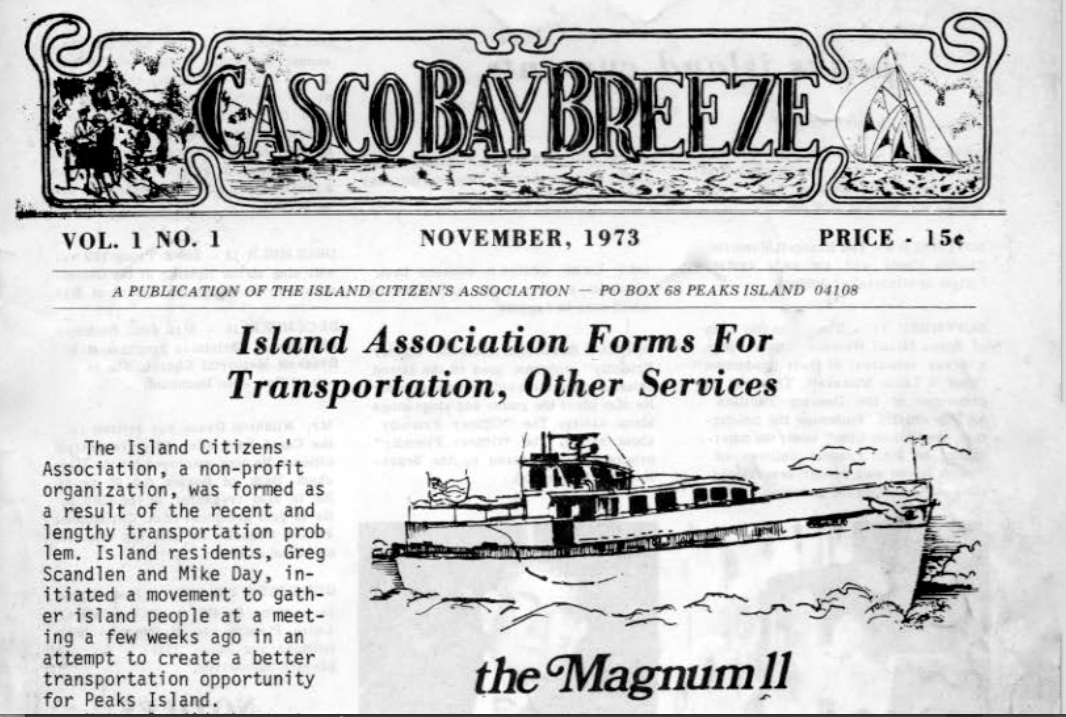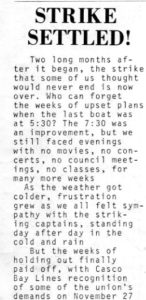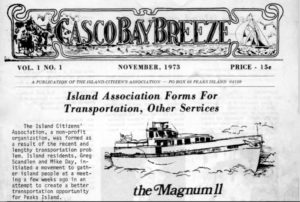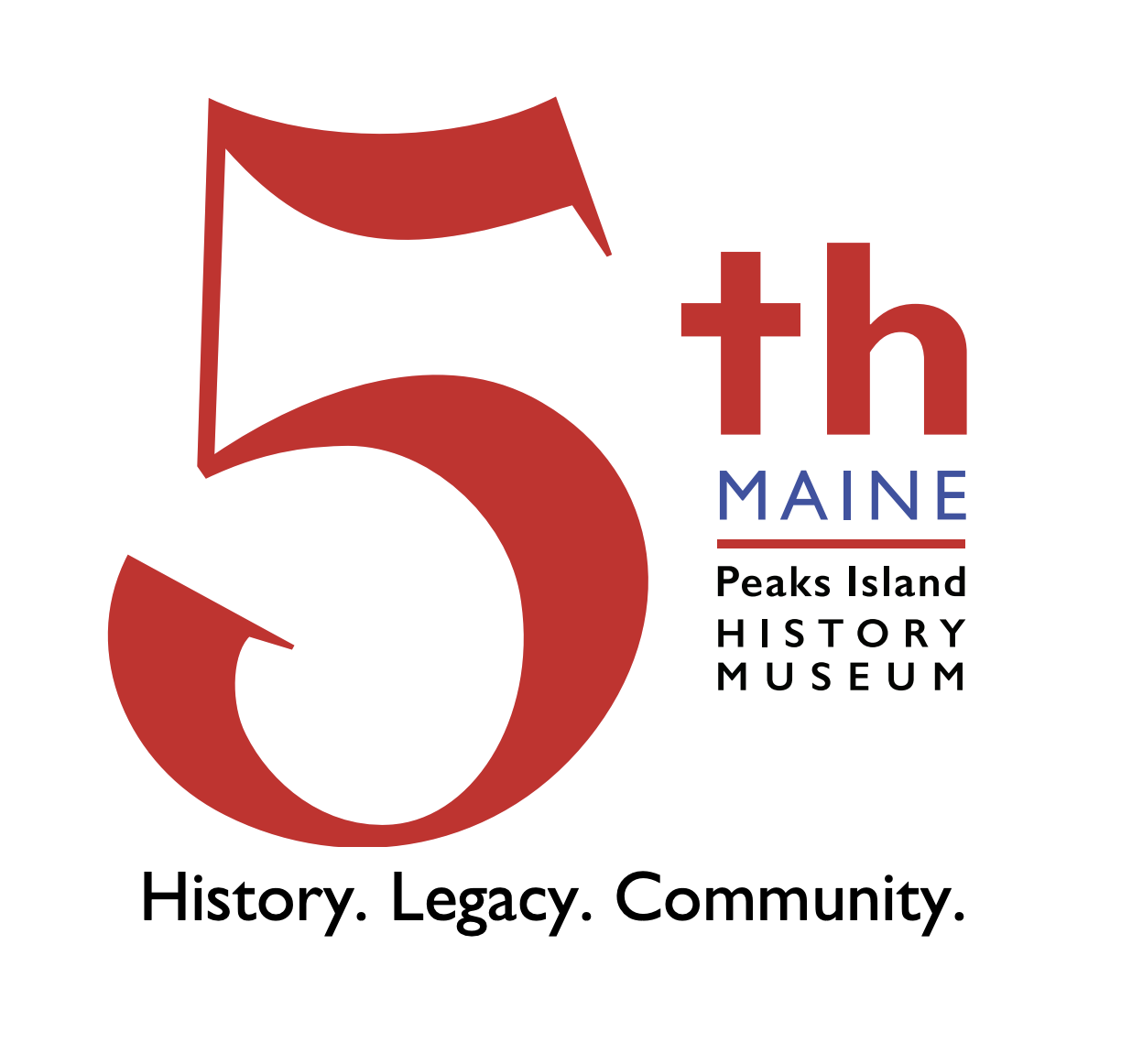
Strike! Conflict at Casco Bay Lines
The relationship between Casco Bay Lines (CBL) and islanders from the late 1950s through the 1970s was often turbulent. Stories about these disputes made newspaper headlines regularly.
Then, as now, ferries served as lifelines for islanders and island businesses. People commuted to jobs, schools, medical appointments, and recreation on the mainland. The ferries transported essential freight, mail, and food that made life on islands livable year-round. CBL, a privately-owned company until 1982, had a legal monopoly on that lifeline as the one and only ferry service authorized by the Maine Public Utilities Commission to operate in Casco Bay.
 Headline from a Portland newspaper, July 1959
Headline from a Portland newspaper, July 1959
Today, we take reliable and safe service for granted, but in the in the 1950s, 60s, and 70s islanders found ferry service undependable, and sometimes dangerous due to the lack of navigational radar that led to frequent trip cancellations in bad weather. Passengers complained about inadequate space in the terminal on Custom House Wharf, unsanitary restrooms, and the untrustworthy administration.
Continuous labor disputes between the ferry captains and CBL management led to numerous strikes. There were four strikes in 1973 alone, one lasting eight weeks. During these strikes ferry service was severely reduced.
 Casco Bay Breeze, December 1973
Casco Bay Breeze, December 1973
An “Island Citizen’s Association” formed in the early 1970s primarily to tackle these transportation disruptions. This group tried to get an alternate ferry service running between Peaks and Portland on board a vessel named the Magnum II.
 First issue of the Island Citizen’s Association publication, Casco Bay Breeze, November 1973
First issue of the Island Citizen’s Association publication, Casco Bay Breeze, November 1973
CBL filed for bankruptcy in 1981. The quasi-municipal Casco Bay Island Transit District took over in 1982. Finally, the relationship between CBL, its labor force, and island residents stabilized, laying the groundwork for the dependable service islanders benefit from today.
